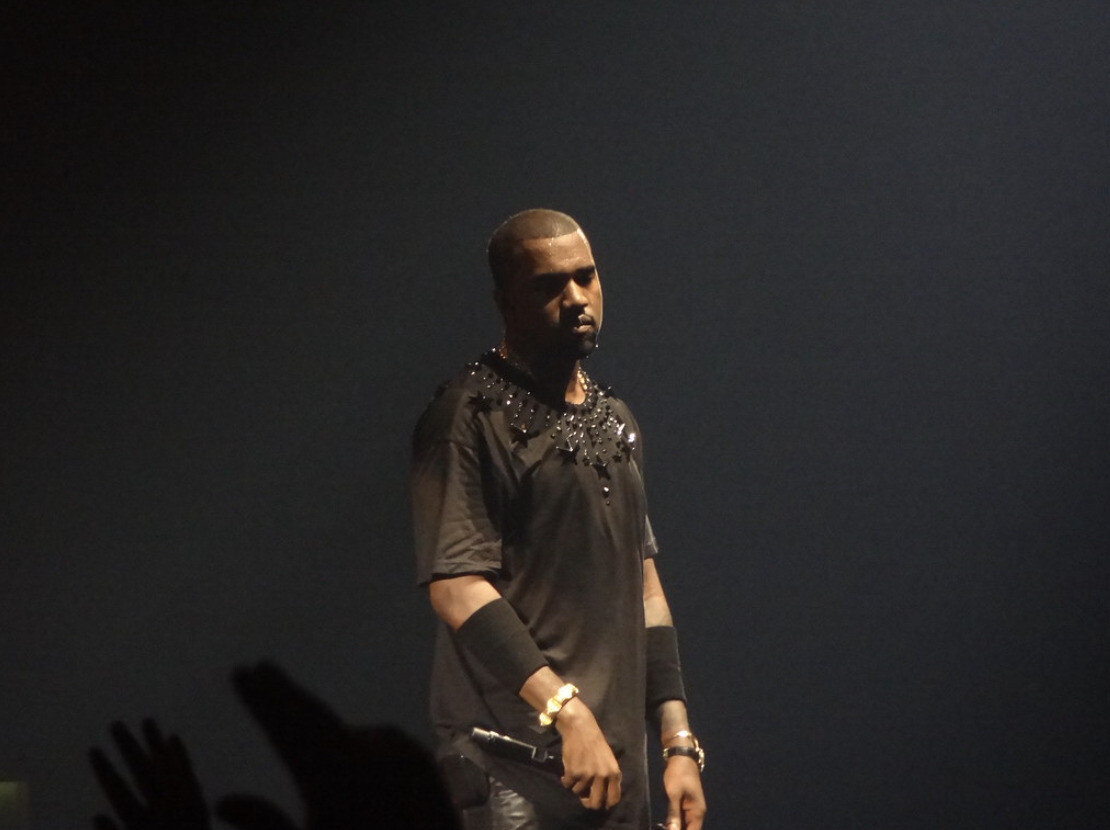Abbie Dymond, Executive Editor
@abbiedcourant
It is often debated if it is possible to separate the art from the artist. Some people argue that the personal beliefs of an artist should not impact the way that their art is appreciated, while some say that an artist’s character is bonded like glue to their work and that supporting their music is supporting their opinions.
While artists are inevitably bound to say things that are not to the liking of everyone, the moral dilemma of whether or not it’s possible to separate the two has challenged many people with recent statements by Ye, formerly known as Kanye West.
Ye is one of the most well-known rappers, and he is also one of the most influential. However, with recent derogatory outbursts, the famous and well-liked artist is forcing many people to decide where their morality lies.
Since October, Ye has made a series of questionable comments targeting the Jewish community. In a deleted tweet, Ye stated, “I’m going death con three on JEWISH PEOPLE.”
In the past months, Ye has made additional anti-Semitic comments which have tarnished his reputation; however, the cherry on top came during an interview with conspiracy theorist Alex Jones. While Ye has always said bizarre things, he has taken it to a new level that challenges many people’s morality and raises many difficult questions.
During Ye’s interview on the show, accompanied by multiple anti-Semitic comments, he went as far as to praise Hitler. “I see good things about Hitler,” he said. After praising the Nazi regime, Ye forever altered how he is perceived.
Undoubtedly, what Ye has said is morally repugnant, and praising a man responsible for the death of over eight million people is impermissible. Not only is Ye spreading hate, but he is also normalizing talking about the Nazi regime in a praising manner, which is more than unacceptable.
There are a lot of complex aspects to this topic to consider, especially when you’ve liked an artist for a long time before they’ve said awful things. Can you like the music enjoyed by many created before the statement was made and choose not to support future music? Or is supporting his music directly correlated to his beliefs and actions? Where is the line drawn?
The fashion industry is no help in taking the moral high ground. Despite his controversial statements, Karl Lagerfeld’s work is still highly regarded in the fashion industry, as the anticipated 2023 Met Gala will be held in honor of Karl Lagerfeld’s passing, where the theme will be “Karl Lagerfeld: A Line of Beauty.” The late German fashion designer who is praised for his designs for Chanel, has said many Islamophobic statements.
The 2023 Met Gala is one of the hottest tickets in American culture and is one of the most coveted events of the year. Yet,they’re honoring someone who has said discriminatory and hateful things. This year’s theme delivers a high-profile message that it is possible to separate the art from the artist; however, it doesn’t diminish the moral quandary that exists within this topic.
And what about movies? Is it okay to enjoy The Lord of the Rings, despite who produced it?
Harvey Weinstein, a former film producer, convicted sex offender, and frequently associated with the #MeToo movement, has produced many films. Along with the Lord of the Rings series, Weinstein has produced many other very popular films which have been heavily praised in the film industry. Just this week, Harvey was convicted of yet another rape allegation is Los Angeles. Many enjoy his movies, while many have called for a boycott of his work. Should people not watch his movies because of his convictions, or is it ok to enjoy the films but shame his actions?
Evidently, whether or not it is possible to separate the artist from the art is a highly complex question, and it is impossible to determine the answer without considering both sides of the debate. On the one hand, people may argue that no matter the circumstances, an artist is inseparably tied to their work because of the actions of the opinions expressed by the artist.
On the other hand, people can argue that it is possible to separate an artist’s beliefs from their art and that art is a separate thing that should be judged independently and on its own standing.
Ultimately, whether or not it’s possible to separate the art from the artist is a personal choice that depends on one’s morals and beliefs. I believe that it is possible to separate the two. However, where the line is drawn stems from one’s personal perspective.




